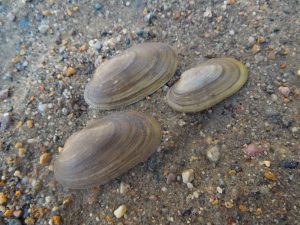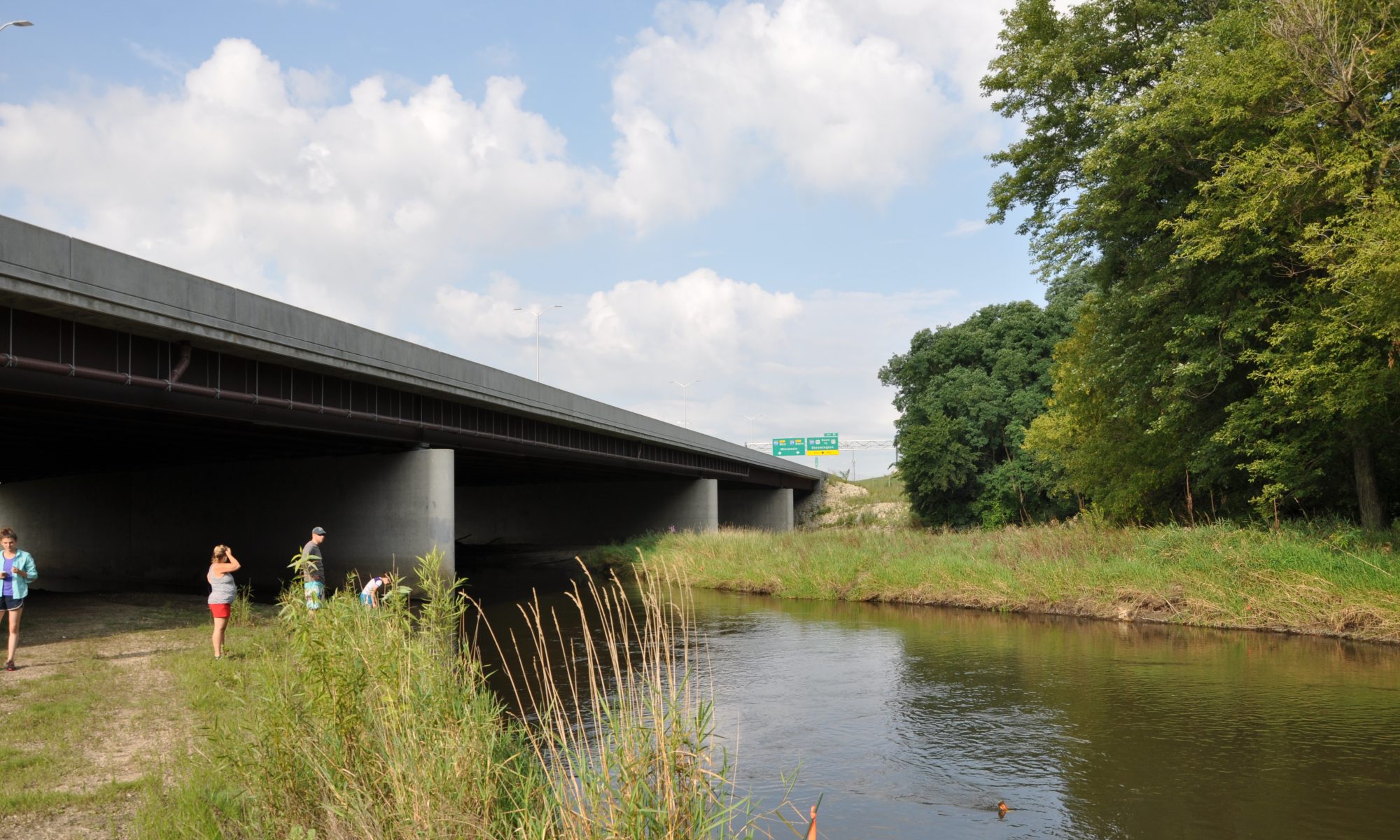 The Salamander Mussel is state-endangered and has not been collected alive in Illinois in decades. Salamander Mussels were recorded sporadically throughout the state, with recent dead shell records collected in Vermilion County.
The Salamander Mussel is state-endangered and has not been collected alive in Illinois in decades. Salamander Mussels were recorded sporadically throughout the state, with recent dead shell records collected in Vermilion County.
They are host-specific, and where most freshwater mussels release their glochidia (larval stage) onto fish species, the Salamander Mussel uses the state threatened Mudpuppy as a host.
Salamander Mussels and Mudpuppies are difficult to detect using conventional timed-search surveys. Salamander Mussels are small (less than 2″ long) and Mudpuppies live under large slabs of rock.
Our objective was to use eDNA to detect the Salamander Mussels’ presence in historical and likely extant locations in Illinois. We:
-
-
- surveyed sites in northern and east-central Illinois with historical or recent shell data including several known Mudpuppy records
- received samples from Wisconsin, where wild Salamander Mussel populations are extant, and propagation efforts at the Genoa National Fish Hatchery are occurring.
- incorporated water samples collected opportunistically from the East Fork White River in Indiana, where Salamander Mussels populations are extant.
- detected the Salamander Mussels’ presence in 2 known wild locations in the East Fork White River, Indiana, but no other field samples collected in Illinois or Wisconsin amplified.
- Water samples from within the rearing tank at Genoa National Fish Hatchery amplified, but not samples from the inflow or outflow pipe.
-
Preliminary results have shown we can detect both Salamander Mussels and Mudpuppies from water samples and have even successfully detected both species at 1 site.
Further work will include expanding our sampling efforts throughout Illinois, including the greater Chicago region and areas within the Tollway network. The Salamander Mussel’s active breeding season is late summer/autumn with a late spring release of juveniles. Mudpuppy activity increases during the winter months and subsides during the heat of summer. We are conducting repeated sampling at several sites to determine if seasonality affects Salamander Mussel and Mudpuppy detection.
